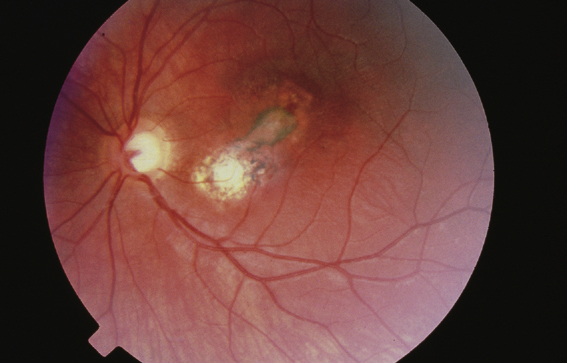toxoplasmosis /tok′sōplazmō″sis/ [Gk, toxikon + plasma + osis, condition] , a common infection with the protozoan intracellular parasite Toxoplasma gondii. The congenital form is characterized by liver and brain involvement with cerebral calcification, convulsions, blindness, microcephaly or hydrocephaly, and cognitive impairment. The acquired form is characterized by rash, lymphadenopathy, fever, malaise, central nervous system disorders, myocarditis, and pneumonitis. ▪ OBSERVATIONS: Cats acquire the organism by eating infected birds and mice. Cysts of the organism are transmitted from cat feces to humans or by human ingestion of inadequately cooked meat containing the cysts. Transplacental transmission occurs only during acute infection of the mother, but the disease is very serious in the fetus and in those with human immunodeficiency virus or other immunosuppressive conditions or impaired immune system. Diagnosis is made by demonstrating rising antibody titers or by immunofluorescent antibody tests. Infection confers immunity. ▪ INTERVENTIONS: Combinations of sulfonamides with pyrimethamine are recommended as treatment, possibly reducing the severity of the illness in the fetus. ▪ PATIENT CARE CONSIDERATIONS: All meat should be heated to at least 140° F (60° C) throughout to kill this parasite. Pregnant women who are not immune are advised not to handle cats, cat feces, or litter boxes.

